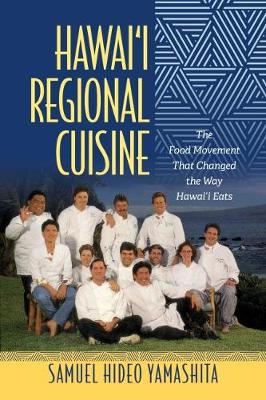Food in Asia and the Pacific
1 total work
Poke, spam musubi, and loco mocos are currently the rage on the mainland United States, and restaurants serving "local food" have popped up not only in Los Angeles, San Francisco, and Seattle but also in Chicago, New York, and Washington, DC. Who could have predicted the popularity of over-the-top and carb-heavy plate lunches, spam musubi, and poke bowls? What explains this?
One quick answer is Hawai'i Regional Cuisine. The twelve chefs who grandly announced in 1991 the establishment of what they called Hawai'i Regional Cuisine may well have paved the way. Their commitment to using locally sourced ingredients of the highest quality at their restaurants quickly attracted the interest of journalists writing for national newspapers and magazines. Yet even after they gained national acclaim and celebrity, the HRC chefs never forgot local food, and many created haute-cuisine versions of Hawai'i's fare, such as saimin, the malasada, and the loco moco.
Samuel H. Yamashita's Hawai'i Regional Cuisine: The Food Movement That Changed the Way Hawai'i Eats is the first book dedicated to the HRC movement. It is based on interviews with thirty-six chefs, farmers, retailers, culinary arts educators, and food writers, as well as on nearly everything written about the HRC chefs in the national and local media. Yamashita follows the history of this important regional movement from 1991 through 2016, offering a boldly original analysis of its cuisine and assessment of its impact on the islands.
Hawai'i Regional Cuisine will satisfy those who are passionate about food and intrigued by how the HRC movement changed the food scene in the islands.
One quick answer is Hawai'i Regional Cuisine. The twelve chefs who grandly announced in 1991 the establishment of what they called Hawai'i Regional Cuisine may well have paved the way. Their commitment to using locally sourced ingredients of the highest quality at their restaurants quickly attracted the interest of journalists writing for national newspapers and magazines. Yet even after they gained national acclaim and celebrity, the HRC chefs never forgot local food, and many created haute-cuisine versions of Hawai'i's fare, such as saimin, the malasada, and the loco moco.
Samuel H. Yamashita's Hawai'i Regional Cuisine: The Food Movement That Changed the Way Hawai'i Eats is the first book dedicated to the HRC movement. It is based on interviews with thirty-six chefs, farmers, retailers, culinary arts educators, and food writers, as well as on nearly everything written about the HRC chefs in the national and local media. Yamashita follows the history of this important regional movement from 1991 through 2016, offering a boldly original analysis of its cuisine and assessment of its impact on the islands.
Hawai'i Regional Cuisine will satisfy those who are passionate about food and intrigued by how the HRC movement changed the food scene in the islands.
